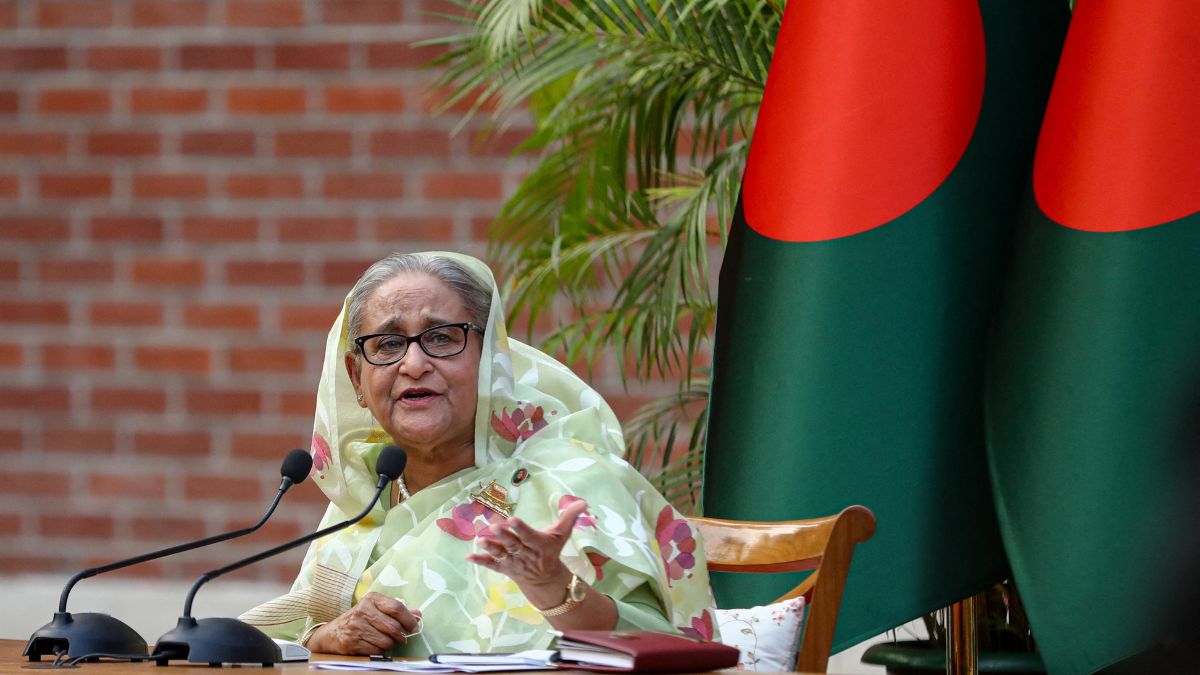A long-speculated ‘secret locker’ linked to former Bangladesh Prime Minister Sheikh Hasina has been found and seized by the country’s revenue officials.
Based on confidential information, the Central Intelligence Unit of the National Board of Revenue (NBR) sealed locker number 128 on Wednesday morning at Pubali Bank’s Motijheel branch in Dhaka, housed inside the Army Kalyan Bhavan.
According to reports, the locker is listed under Sheikh Hasina’s name.
ALSO READ | Does Sheikh Hasina’s party have office in Kolkata?
People have been flooding social media, wondering if it holds money, gold jewellery or even crucial documents.
But what exactly is inside the locker?
Find out below:
Inside Sheikh Hasina’s ‘secret’ locker
Locker number 128 remained unopened as it emerged that Sheikh Hasina still holds one of the two keys needed to access it.
Sources told Prothom Alo that two bank accounts in her name were also found at the same Pubali Bank branch.
One account has a fixed deposit receipt (FDR) of 12 lakh taka (about Rs 8.71 lakh), and the other has deposits of 44 lakh taka (about Rs 31.94 lakh). Altogether, the tax department has seized assets worth 56 lakh taka.
Both accounts have been frozen, and any withdrawals have been stopped.
But what is inside the locker?
The report, citing sources, said the locker and accounts were seized as part of a wider investigation.
It may hold gold jewellery and important papers, though this has not been confirmed yet, the Bangladeshi daily reported.
Impact Shorts
More ShortsThis move comes as the National Board of Revenue (NBR) investigates allegations of tax evasion against the ousted former Prime Minister, who fled to India after a student-led mass movement.
The revelation is likely to have major political fallout. Analysts say it could also intensify debates over the financial dealings of Hasina and her family.
The interim government has called the action a key step in its anti-corruption campaign, while Awami League supporters have rejected it as political targeting.
Where is Sheikh Hasina?
In Bangladesh, student-led protests began over rules that limited the number of civil service jobs based on merit.
These protests grew into a massive nationwide movement in July last year that led to the ousting of Prime Minister Sheikh Hasina. Hundreds of people, mostly students, died in the violence.
Hasina fled to India, and an unelected interim government led by Nobel laureate Muhammad Yunus took charge. He promised to restore order and hold elections after carrying out reforms.
A year later, Bangladesh is still in turmoil. Political parties are fighting over election dates. Mob violence, political clashes, and attacks on vulnerable minority groups by religious hard-liners have increased.
Rights groups say some of the fear and repression seen during Hasina’s rule, including enforced disappearances, seem to have ended.
However, they also accuse the new government of using arbitrary arrests to target political rivals, especially Hasina’s supporters, many of whom are now in hiding.
Hasina’s Awami League, which is still banned, claims that over two dozen of its supporters have died in custody in the past year. The Yunus-led government has declared August 5 as a public holiday to mark Hasina’s removal.
Human Rights Watch said in a statement on July 30 that the interim government “is falling short in implementing its challenging human rights agenda.” It said abuses against ethnic and other minority groups continue in some parts of the country.
Yunus has also clashed with the Bangladesh Nationalist Party (BNP), now the main opposition force.
The BNP, led by former Prime Minister Khaleda Zia, has demanded elections either in December or February next year. Yunus has said they could be held in April.
With inputs from agencies
)